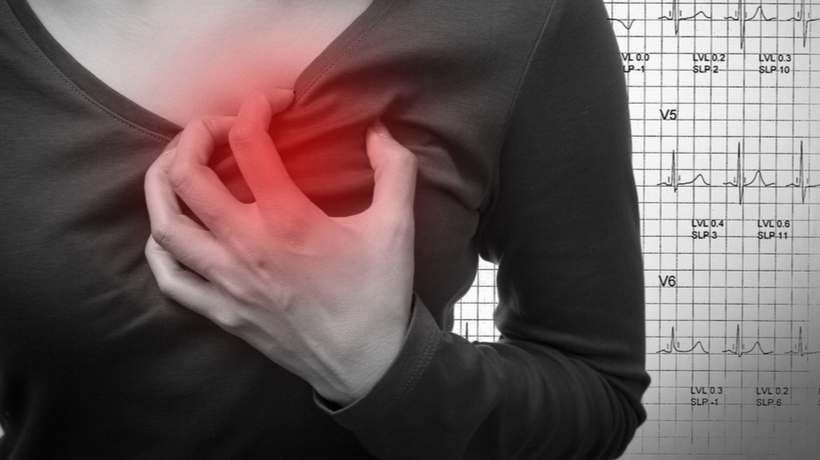Heartbreak is called heartbreak for a reason: according to the American Heart Association, deep emotional anguish can leave us in real, physical pain. According to Heart.org, this condition is known as broken heart syndrome — also known as stress-induced cardiomyopathy or takotsubo cardiomyopathy — and can affect even healthy people.
But are these effects, known as broken heart syndrome, always transient? Or can they lead to long-term cardiac damage?
What Is Broken Heart Syndrome?
Heart.org reports that broken heart syndrome can cause a part of your heart to temporarily enlarge and have difficulty pumping blood, while the rest of your heart functions “normally or with even more forceful contractions.” The bad news is that this can lead to severe, short-term heart muscle failure. The good news, however, is that most people who experience broken heart syndrome recover and don’t experience it again, and the condition is only fatal in rare cases.
Women are more likely than men to experience a sudden, intense chest pain in response to an emotionally-stressful event, like the death of a loved one or a breakup. This type of pain is often the result of a surge of stress hormones, which the body can also produce in response to good news, like winning the lottery.
Similarities and Differences Between Broken Heart Syndrome and a Heart Attack
Since symptoms of broken heart syndrome can mimic those of a heart attack, the condition can be misdiagnosed as such. Heart.org explains that patients with broken heart syndrome who are medically tested often present with “dramatic changes in rhythm and blood substances,” which are also seen in those experiencing a heart attack.
The biggest difference between the medical presentation of broken heart syndrome versus that of a heart attack is that in the case of broken heart syndrome, there’s no evidence of blocked heart arteries. In addition, those suffering from broken heart syndrome have different EKG results from those experiencing a heart attack, and their blood tests will show no signs of heart damage. Finally, recovery time for those who recover from broken heart syndrome is much shorter than those who recover from a heart attack: usually days or weeks versus a month or more.
Signs and Symptoms of Broken Heart Syndrome
According to Heart.org, the most common signs of broken heart syndrome are chest pain and shortness of breath, though irregular heartbeat can also occur.
One of the more serious conditions that can occur with broken heart syndrome is cardiogenic shock, which is when the heart suddenly becomes weak and becomes unable to “pump enough blood to meet the body’s needs.” This is also the most common cause of death in people who have heart attacks.
What to Do if You Are Worried About Your Heart Health
If you are experiencing symptoms that concern you, see a doctor or visit an emergency room as soon as possible. Researchers are just starting to learn the causes of broken heart syndrome and how to diagnose and treat it, but doctors can perform tests to help make an accurate diagnosis and establish a treatment plan.
For more on broken heart syndrome and other related conditions, visit www.Heart.org.



